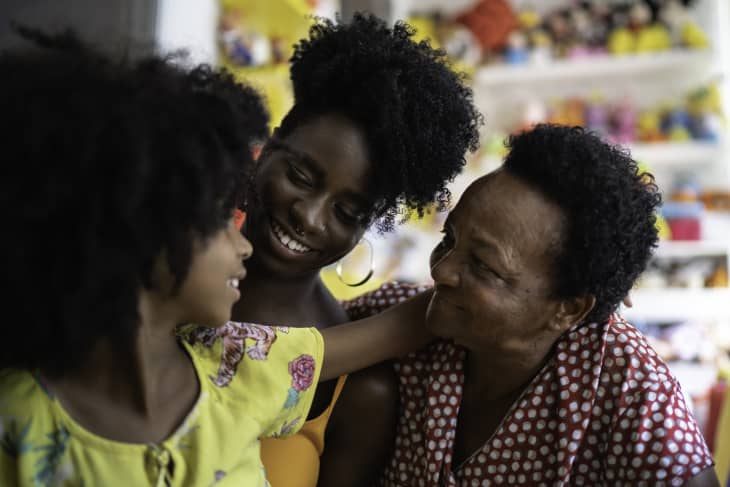Why Celebrating Juneteenth at Home is Just As Powerful This Year

This year has been unexpected, to say the least. From a global pandemic putting the world on pause, to this same world being awakened to the unjust mistreatment of Black lives—2020 is in a league of its own. Now, as people across the country march and protest in support of the Black Lives Matter movement, they’re getting curious. Curious about the things they may not have known, and the things they should have known. Things everyone should have known, such as the importance of Juneteenth.
Juneteenth is a holiday meant to commemorate the end of the practice of slavery in the United States. When the Emancipation Proclamation was signed by Abraham Lincoln in 1863, it didn’t abolish slavery in every state. For those states that still permitted slavery, it was legal until after the Union won the Civil War in April of 1865. Still, hundreds of thousands of Black people remained enslaved until Union troops travelled to Galveston, Texas, to announce that slavery had ended and that they were free. The arrival of the troops and declaration of this news, on June 19, 1865, marked the day the last of the enslaved Black population became free and effectively made every person within the United States “free.” That’s something to be recognized, and this year it looks like it will be—on a much larger scale.
Even though Juneteenth has never been on the national stage the way it is this year, it has been observed by Black communities throughout the United States for years. Over the last few decades, it has been celebrated by festivals, parades, barbecues, and pageants. Now that hundreds of companies, including Twitter and Nike, have declared Juneteenth a paid company holiday, it’ll be celebrated by more Americans than it has likely ever been before. With picnics, festivals, and large gatherings cancelled due to COVID-19, how can we honor this monumental holiday during a time like this?
“I plan to connect with some of the women in my life who remind me of how resilient, marvelous, beautiful, and human Black people are,” said writer and image activist Michaela Angela Davis. “Until there’s a Federal Emancipation Day and the institution of slavery is officially recognized as a crime against humanity, Juneteenth will continue to be a day of personal and ancestral reflection.”
James Woodall, Georgia’s NAACP President said, “Juneteenth is an opportunity to reflect and recharge.” Celebrating this year, during this movement for Black lives, is important, he adds. As Black Americans continue being “tested and tried, I believe it is necessary, especially in this moment. What we need is solidarity, empowerment, and celebration.” Woodall encourages supporting Black-owned businesses on the day and participating in virtual events that honor the holiday. One such event is the NAACP’s Juneteenth Family Reunion, a virtual gathering that Rebekkah Kimani plans to attend. “I’m also going to digitally volunteer for the National Museum of African American History,” said Kimani.
The New York Public Library’s Schomburg Center for Research in Black Culture is also helping folks honor the day. “We will be hosting virtual events in commemoration of Juneteenth on our social media channels, including with descendants of free African Americans in Texas who established their own communities after Emancipation,” said Kevin Young, Director of the Schomburg Center.
“The people before us paved the way to freedom, and the best way to honor that is to continue to share their stories and craft our own,” he said. Additionally, the center has also put together the Schomburg Center Black Liberation Reading List for anyone who wants to foster a better understanding of the Black experience.
Although community is especially significant when it comes to this holiday, so is home. On this Juneteenth, during a time in which many of people are confined to their homes, they’re able to truly honor the historical significance of the day. Juneteenth at home can be a time for celebration, education, and more importantly, conversations.
Start dinner by asking everyone their thoughts on the current state of our country, and discussing the history that got us here. Ask one another, “How do you plan on contributing to the dismantling of racist institutions and practices in your day-to-day life?” These conversations may be uncomfortable for many white Americans, but they’re needed for progress within our country.
As we honor Juneteenth, a holiday that represents a delayed freedom for Black Americans—during a time in which many Americans are being awakened to the reality that this freedom still hasn’t arrived—home is incredibly important. Antiracism and the liberation of Black Americans, and subsequently the liberation of all Americans—true patriotism—it all starts at home.